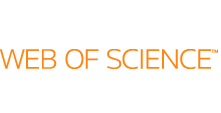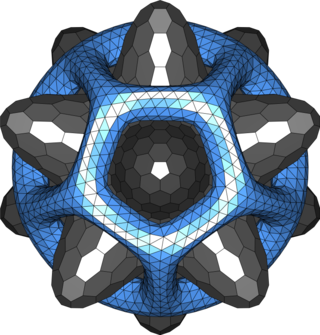
Academic publishing is the subfield of publishing which distributes academic research and scholarship. Most academic work is published in academic journal articles, books or theses. The part of academic written output that is not formally published but merely printed up or posted on the Internet is often called "grey literature". Most scientific and scholarly journals, and many academic and scholarly books, though not all, are based on some form of peer review or editorial refereeing to qualify texts for publication. Peer review quality and selectivity standards vary greatly from journal to journal, publisher to publisher, and field to field.

Sir William Timothy Gowers, is a British mathematician. He is Professeur titulaire of the Combinatorics chair at the Collège de France, and director of research at the University of Cambridge and Fellow of Trinity College, Cambridge. In 1998, he received the Fields Medal for research connecting the fields of functional analysis and combinatorics.

Open access (OA) is a set of principles and a range of practices through which research outputs are distributed online, free of access charges or other barriers. With open access strictly defined, or libre open access, barriers to copying or reuse are also reduced or removed by applying an open license for copyright.

Elsevier is a Dutch academic publishing company specializing in scientific, technical, and medical content. Its products include journals such as The Lancet, Cell, the ScienceDirect collection of electronic journals, Trends, the Current Opinion series, the online citation database Scopus, the SciVal tool for measuring research performance, the ClinicalKey search engine for clinicians, and the ClinicalPath evidence-based cancer care service. Elsevier's products and services include digital tools for data management, instruction, research analytics, and assessment. Elsevier is part of the RELX Group, known until 2015 as Reed Elsevier, a publicly-traded company. According to RELX reports, in 2022 Elsevier published more than 600,000 articles annually in over 2,800 journals; as of 2018 its archives contained over 17 million documents and 40,000 e-books, with over one billion annual downloads.

Taylor & Francis Group is an international company originating in England that publishes books and academic journals. Its parts include Taylor & Francis, CRC Press, Routledge, F1000 Research and Dovepress. It is a division of Informa plc, a United Kingdom-based publisher and conference company.
F1000 is an open research publisher for scientists, scholars, and clinical researchers. F1000 offers a different research evaluation service from standard academic journals by offering peer-review after, rather than before, publishing a research article. Initially, F1000 was named after the 1,000 faculty members that performed peer-reviews, but over time F1000 expanded to more than 8,000 members. When F1000 was acquired by Taylor & Francis Group in January 2020, it kept the publishing services. F1000Prime and F1000 Workspace were acquired by different brands.
Springer Science+Business Media, commonly known as Springer, is a German multinational publishing company of books, e-books and peer-reviewed journals in science, humanities, technical and medical (STM) publishing.
An institutional repository (IR) is an archive for collecting, preserving, and disseminating digital copies of the intellectual output of an institution, particularly a research institution. Academics also utilize their IRs for archiving published works to increase their visibility and collaboration with other academics However, most of these outputs produced by universities are not effectively accessed and shared by researchers and other stakeholders As a result academics should be involved in the implementation and development of an IR project so that they can learn the benefits and purpose of building an IR.

Open science is the movement to make scientific research and its dissemination accessible to all levels of society, amateur or professional. Open science is transparent and accessible knowledge that is shared and developed through collaborative networks. It encompasses practices such as publishing open research, campaigning for open access, encouraging scientists to practice open-notebook science, broader dissemination and engagement in science and generally making it easier to publish, access and communicate scientific knowledge.

Open Journal Systems, also known as OJS, is an open source and free software for the management of peer-reviewed academic journals, created by the Public Knowledge Project, and released under the GNU General Public License.

The Web of Science is a paid-access platform that provides access to multiple databases that provide reference and citation data from academic journals, conference proceedings, and other documents in various academic disciplines. Until 1997, it was originally produced by the Institute for Scientific Information. It is currently owned by Clarivate.

Free content, libre content, libre information, or free information is any kind of functional work, work of art, or other creative content that meets the definition of a free cultural work, meaning "works or expressions which can be freely studied, applied, copied and/or modified, by anyone, for any purpose."

The Cost of Knowledge is a protest by academics against the business practices of academic journal publisher Elsevier. Among the reasons for the protests were a call for lower prices for journals and to promote increased open access to information. The main work of the project was to ask researchers to sign a statement committing not to support Elsevier journals by publishing, performing peer review, or providing editorial services for these journals.
Academic journal publishing reform is the advocacy for changes in the way academic journals are created and distributed in the age of the Internet and the advent of electronic publishing. Since the rise of the Internet, people have organized campaigns to change the relationships among and between academic authors, their traditional distributors and their readership. Most of the discussion has centered on taking advantage of benefits offered by the Internet's capacity for widespread distribution of reading material.
Frontiers Media SA is a publisher of peer-reviewed, open access, scientific journals currently active in science, technology, and medicine. It was founded in 2007 by Kamila and Henry Markram. Frontiers is based in Lausanne, Switzerland, with other offices in the United Kingdom, Spain, and China. In 2022, Frontiers employed more than 1,400 people, across 14 countries. All Frontiers journals are published under a Creative Commons Attribution License.

eLife is a not-for-profit, peer-reviewed, open access, science publisher for the biomedical and life sciences. It was established at the end of 2012 by the Howard Hughes Medical Institute, Max Planck Society, and Wellcome Trust, following a workshop held in 2010 at the Janelia Farm Research Campus. Together, these organizations provided the initial funding to support the business and publishing operations. In 2016, the organizations committed US$26 million to continue publication of the journal.
An article processing charge (APC), also known as a publication fee, is a fee which is sometimes charged to authors. Most commonly, it is involved in making an academic work available as open access (OA), in either a full OA journal or in a hybrid journal. This fee may be paid by the author, the author's institution, or their research funder. Sometimes, publication fees are also involved in traditional journals or for paywalled content. Some publishers waive the fee in cases of hardship or geographic location, but this is not a widespread practice. An article processing charge does not guarantee that the author retains copyright to the work, or that it will be made available under a Creative Commons license.

The Journal of Open Source Software is a peer-reviewed open-access scientific journal covering open-source software from any research discipline. The journal was founded in 2016 by editors Arfon Smith, Kyle Niemeyer, Dan Katz, Kevin Moerman, and Karthik Ram. The editor-in-chief is Arfon Smith, and associate editors-in-chief: Dan Foreman-Mackey, Olivia Guest, Daniel Katz, Kevin Moerman, Kyle Niemeyer, George Thiruvathukal, and Krysten Thyng. The journal is a sponsored project of NumFOCUS and an affiliate of the Open Source Initiative. The journal uses GitHub as publishing platform.

Diamond open access refers to academic texts published/distributed/preserved with no fees to either reader or author. Alternative labels include platinum open access, non-commercial open access, cooperative open access or, more recently, open access commons. While these terms were first coined in the 2000s and the 2010s, they have been retroactively applied to a variety of structures and forms of publishing, from subsidized university publishers to volunteer-run cooperatives that existed in prior decades.
The economics of open science describe the economic aspects of making a wide range of scientific outputs to all levels of society.













